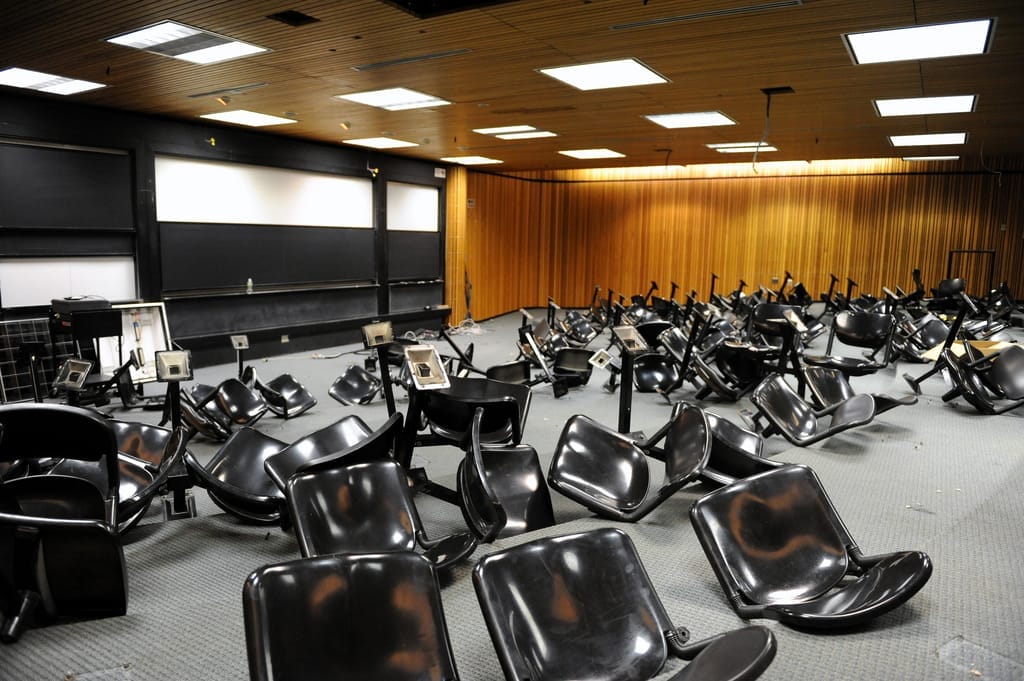Wharton has garnered attention across the business world with the announcement of its new MBA curriculum, which will launch with the Class of 2014. But with all the talk come a lot of questions and even some rumors. Wharton administration sought to provide clarity during a recent town-hall meeting for current MBA students led by Howie Kaufold, vice dean of Wharton’s MBA Program.
As Kaufold explained, Wharton administration wanted to have the chance to lay out, in one place and time, what students can expect come August.
The new curriculum features three main changes: more flexibility for students in course offerings, a cluster-centric social architecture, and the launch of an unprecedented feedback and coaching network.
The scale of the feedback and coaching network will differentiate Wharton not just from other business schools but from any professional development program, said Jeff Klein, director of the Graduate Leadership Program.
The new curriculum will allow the School to create and adjust its MBA courses to always keep pace with the rapidly changing real world. Peggy Bishop Lane, deputy vice dean of academic affairs for the MBA Program, detailed its flexibility, noting how first-year MBAs will now be able to choose from an assortment of courses to meet their core requirements—such as being able to choose from business analytics, information technology, innovation and operations strategy to meet their OPIM core requirement. Students will also have flexibility in timing, allowing them to take core courses in their first or second year. And they will enjoy flexibility in form: the choice to take a course in six weeks, in a week over break or as a simulation during weekends.
Moving from a cohort-based to a cluster-centric system will ensure that every MBA student feels a part of the Wharton community, Kaufold said. Incoming classes will be divided into four clusters. Associate directors will be assigned to each cluster who will be charged with making sure that every cluster member’s expectations are met.
“The associate directors will help everybody find a home if they want one,” said B. Kembrel Jones, deputy vice dean of student life.

Vice Dean Howie Kaufold
Cohorts and the learning teams will still exist and retain their significance, but the new cluster-based system will bring back into the fold the “median student,” said Jones, who will lead the four new associate directors.
Added Klein, every student will feel that multiple members of the administration know them.
Clusters will bond at least once a month over supper—“a little like institutionalized small-group dinners,” Jones explained.
The new curriculum anticipates student needs and expectations like never before, which makes sense given that students helped shape it through surveys, meetings and pilots. The new system may even have a few alumni wishing they were starting their studies in the fall of 2012.
Editor’s note: Find additional details about Wharton’s new MBA curriculum here. You can also find more photos like the one above—which was of renovations in 351 Steinberg Hall-Dietrich Hall—at Wharton’s Flickr photostream.

























